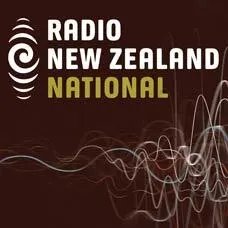Six o'clock swill
A DigitalNZ Story by KellyD
In December 1917 the New Zealand government introduced a temporary wartime measure enforcing pubs to close at 6pm. Sobriety was viewed by many as a patriotic duty and the earlier closing time was intended to increase the efficiency of the workforce. In 1918 six o’clock closing was made permanent, a regulation that was to last for 50 years.
The new bar at the Napier Working Men's Club
Auckland Libraries
A New Zealand Cabinet problem: to beer or not to beer?
Auckland Libraries
Portere, Hank :Six o'clock closing. New Zealand Free lance, 28 September 1917 (front page).
Alexander Turnbull Library
Hotel interior, bar, Christchurch
Alexander Turnbull Library
Six o’clock closing changed the drinking culture in New Zealand. In the hour between finishing work and the pub closing, men gathered to drink as much beer as they could. The rush to the bar as last drinks were called became known as the 'six o'clock swill'.
Inside pub area, Trentham Racecourse, Upper Hutt
Alexander Turnbull Library
Three Men
Te Awamutu Museum
Men, and a dog, in the Denniston Hotel
Alexander Turnbull Library
Glass of beer showing short measure of 8d beer from a Wellington hotel
Alexander Turnbull Library
Beer glass
Museum of New Zealand Te Papa Tongarewa
Beer jug
Museum of New Zealand Te Papa Tongarewa
In a national referendum in 1949, voters opted to keep the six o’clock closing time. Supporters argued that the earlier closing time was beneficial to family life and also made it safer to drive after dark.
New Zealand Alliance :Yes! 6 o'clock closing is the safest. Six o'clock has proved a boon. 1948.
Alexander Turnbull Library
Six o’clock closing
Manatū Taonga, the Ministry for Culture and Heritage
6 o'clock closing is safest; I vote for closing at 6 p.m. [1948-1949]
Alexander Turnbull Library
Road fatalities start here! Vote 6 o'clock closing for safer driving after dark. [1948-1949].
Alexander Turnbull Library
The referendum result meant that the tradition of after work drinks at the pub continued for another generation.
Six O'clock Swill 1963
Tauranga City Libraries
The ‘six o’clock swill’
Manatū Taonga, the Ministry for Culture and Heritage
New Zealand pub scene, 1967
Manatū Taonga, the Ministry for Culture and Heritage
During the 1960s the early closing time was challenged. The growing restaurant industry struggled with the complex rules around serving alcohol with meals and there were increasing numbers of international tourists who bemoaned the lack of venues open at night.
La Boheme Restaurant, Wellesley Street West, 1964
Auckland Libraries
Le Gourmet Restaurant, Shortland Street, 1964
Auckland Libraries
Fagel's Restaurant, Customs Street, 1960
Auckland Libraries
In another second referendum in September 1967, nearly 64% of voters supported later closing. Three weeks later, on 9 October 1967, bar closing times were extended to 10pm. It was the official end of the 'six o'clock swill', a practice that was to have a lasting and unintended impact on New Zealand's drinking culture.
Half a century since 'six o'clock swill'
Radio New Zealand




![New Zealand Alliance for the Abolition of the Liquor Traffic: Send us a six o'clock closing rhyme. 10 would not be a moderate hour; to vote for six is in your power. Referendum March Nine ... Wright & Carman, 127 Vivian Street, Wellington [1949] Image: New Zealand Alliance for the Abolition of the Liquor Traffic: Send us a six o'clock closing rhyme. 10 would not be a moderate hour; to vote for six is in your power. Referendum March Nine ... Wright & Carman, 127 Vivian Street, Wellington [1949]](https://thumbnailer.digitalnz.org/?resize=770x&src=https%3A%2F%2Flive.staticflickr.com%2F4504%2F36833854893_25804c7f31_z.jpg&resize=368%253E)





